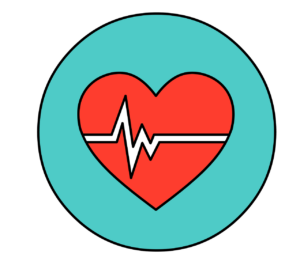 Getting SSDI for Cardiovascular Conditions
Getting SSDI for Cardiovascular Conditions
Living with a cardiovascular condition can limit your ability to work, making basic daily activities difficult. And getting SSDI for a heart condition – even when you meet all the qualifications – can feel overwhelming at times.
If your heart condition is preventing you from holding a job, Social Security Disability Insurance (SSDI) benefits may provide the financial support you need. However, first you need to prove your cardiovascular condition disables you from earning an income. And that requires meeting specific medical criteria.
Here’s what you need to know about getting SSDI for a heart condition and how an experienced SSDI lawyer can help you build a strong case.
Heart Conditions That May Qualify for SSDI
The Social Security Administration (SSA) recognizes a wide range of cardiovascular conditions that can qualify for SSDI benefits.
Common examples include:
- Chronic heart failure (CHF)
- Coronary artery disease (CAD)
- Arrhythmias, including atrial fibrillation and ventricular tachycardia
- Peripheral artery disease (PAD)
- Aneurysms
- Heart transplants
The SSA has something called the Blue Book – a guide that lists medical conditions and the criteria you need to meet to qualify for disability benefits.
For cardiovascular conditions, the Blue Book explains the symptoms, test results, and severity required to be considered disabling. If your condition meets or is as severe as what’s described in the Blue Book, you may be approved for SSDI benefits.
 How to Prove Your Cardiovascular Condition Is Disabling
How to Prove Your Cardiovascular Condition Is Disabling
The key to getting approved for SSDI is showing that your heart condition is severe enough to prevent you from working. To do this, you’ll need comprehensive medical evidence, which may include:
Electrocardiograms
Often called (ECGs or EKGs), these tests measure electrical activity in the heart and can help prove irregularities. Doctors commonly use these tests to gauge your heart’s health.
Stress Tests
Doctors may also use stress tests to evaluate how your heart performs under physical stress. These usually start with exercise to see how well your heart responds, including walking on a treadmill or riding a stationary bicycle.
Imaging Results
Tests like echocardiograms, MRIs, or X-rays can show damage to the heart or blood vessels.
 Cardiac Catheterization Records
Cardiac Catheterization Records
If you’ve undergone this procedure, it can provide crucial evidence about the severity of blockages.
Treatment Records
You’ll always want to collect and keep any treatment records related to your heart. You want to show you’ve followed prescribed treatments – like medication, surgery, or lifestyle changes – and continue to experience disabling symptoms.
Doctor’s Statements
You can submit a statement from your cardiologist to bolster your claim. However, you’ll want to make sure your doctor explains how your condition affects your ability to do your job. The more details they can offer, the better.
Challenges You Might Face When Applying for SSDI
Even if you have a serious cardiovascular condition, getting approved for SSDI can be difficult.
First, you need to make sure you qualify for SSDI in terms of your age, income, work history, and credits.
Second, you want to make sure you prove your condition meets the Blue Book standard. The SSA’s requirements are strict, and missing just one key piece of evidence can lead to a denial. Medical records and test results can make a big difference.
And lastly, you need to show how your condition specifically limits your ability to perform work-related tasks. This may include standing, lifting, or focusing on tasks for long periods. Doctors and your employers can make statements on your behalf to detail exactly how your condition impacts your work.
 How an SSDI Lawyer Can Help You Get SSDI for a Heart Condition
How an SSDI Lawyer Can Help You Get SSDI for a Heart Condition
Navigating the SSDI application process can be overwhelming, especially when you’re managing a serious health condition.
An experienced SSDI lawyer can help you by collecting comprehensive medical evidence. We’ll work with your doctors to gather all the necessary test results, treatment records, and statements to support your claim.
From there, we build a strong case on your behalf. We understand the SSA’s criteria and will make sure your application clearly shows how your condition meets their requirements.
Then, if the SSA denies your initial claim (as they do the majority of the time), we’ll guide you through the appeals process. We represent you at hearings and fight for your benefits.
What’s more, we don’t get paid anything unless and until we win. Even then, it’s only a fraction of your past-due benefits. So you keep everything moving forward.
 Contact a Trusted Lawyer Today
Contact a Trusted Lawyer Today
As a Memphis SSDI lawyer, I understand how life-changing a heart condition can be and how important SSDI benefits are for your financial stability.
My team and I are committed to helping you navigate the process, from gathering evidence to filing appeals. We’ve helped hundreds of people in the Mid-South to get their benefits.
If you’re struggling with a heart condition and need help with your SSDI claim, contact us today for a free consultation. Let us help you take the next step and get the benefits you deserve.
